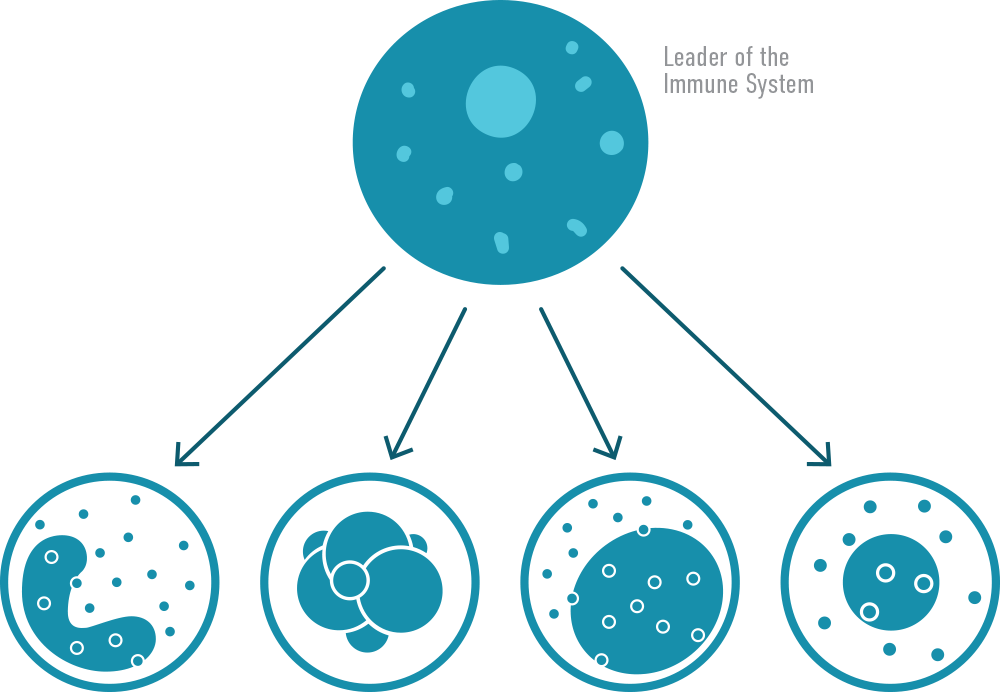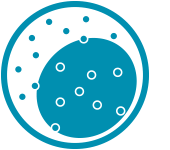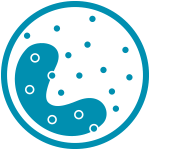Leader of the Immune System

The immune system is comprised of a variety of different immune cells, each with their specialized role, that must work together to effectively maintain the overall health of the body. In order to do so, they need a leader.
Enter the plasmacytoid dendritic cell (pDC), a unique type of immune cell that acts as the commander of the immune system. Once activated, pDCs recruit and stimulate nearly all other immune cells, orchestrating a comprehensive immune response.
Bridging the Gap Between Innate and Adaptive Immunity
While most immune cells are either part of the innate or adaptive immune response, pDCs play a vital role in bridging the body’s first-line defenses and long-range immunity — communicating and organizing activity across both branches of the immune system.
Discovered in the 1990s, pDCs rapidly secrete large quantities of interferons (more than any other immune cell type) in response to external stimuli. Interferons are signaling molecules that trigger the activation and production of various immune cells, including natural killer (NK) cells, B cells and T cells, that each play their own important role in immune defense.
One way to stimulate pDC activity is with IMMUSE® (LC-Plasma), a unique strain of lactic acid bacteria with a novel mechanism of action. IMMUSE is the first commercially available dietary and food ingredient shown to activate these influential cells, providing more comprehensive immune support.

Learn More About the Science Behind IMMUSE®
Critical Cells of The Immune System
To fully understand and appreciate IMMUSE’s revolutionary immune support, let’s take a closer look at the primary players in the immune response.

Natural killer (NK) cells are involved in the first-line innate immune response, immediately responding to any outside stimuli the body encounters.

B cells are part of the longer-term adaptive immune response and specialize in the production of various antibodies.

Helper T cells coordinate the adaptive immune response by communicating with other immune cells and assisting them in their unique role. They help stimulate B cells, increasing the production of antibodies, and support killer T cells.

Killer T cells are part of the adaptive immune response and respond to antibodies produced by B cells.
A cutting-edge postbiotic, IMMUSE’s unique ability to activate pDCs stimulates immune function at the cellular level for a more organized, system-wide immune response.

